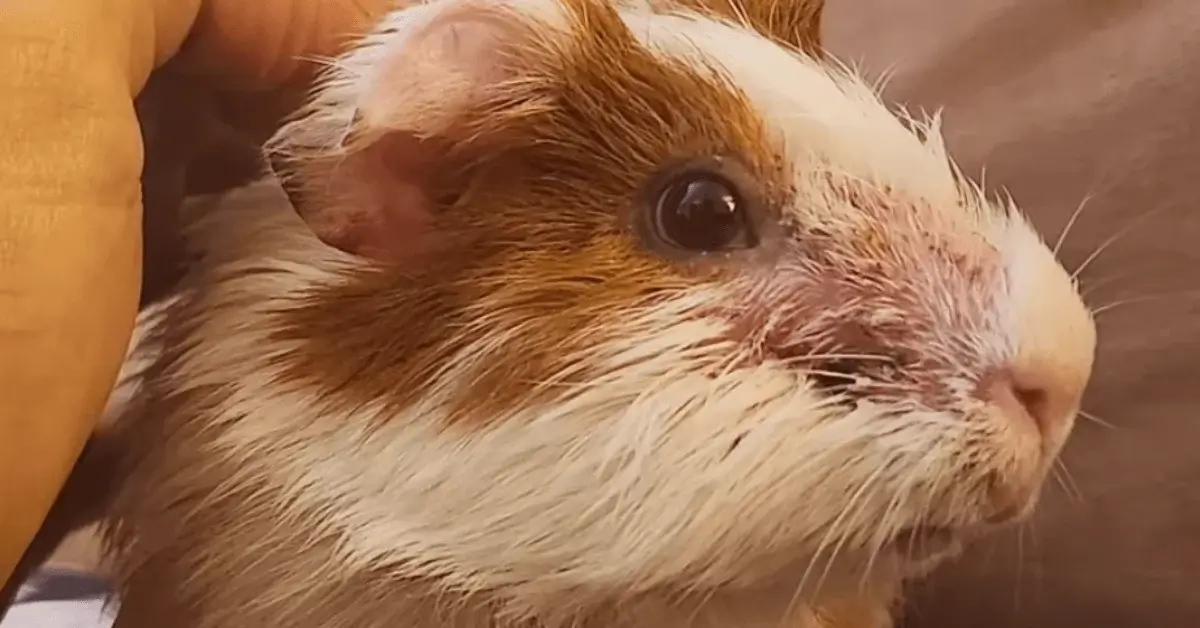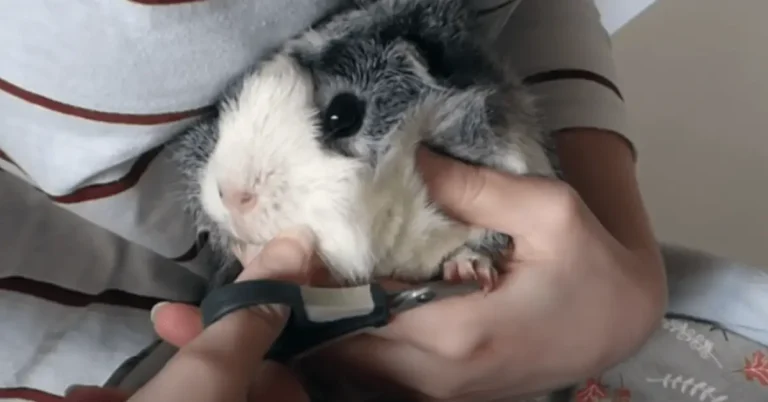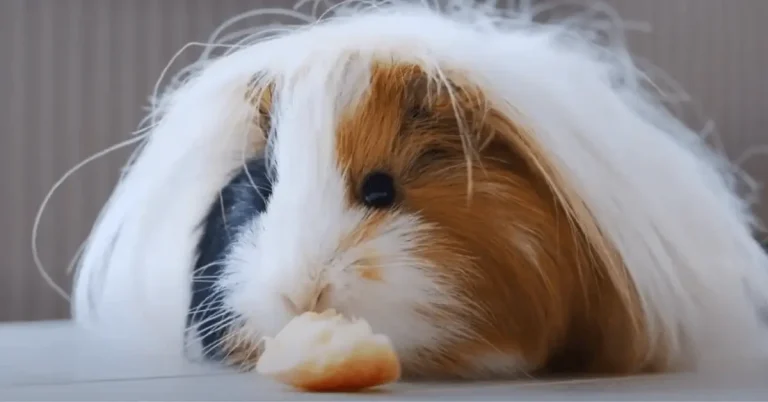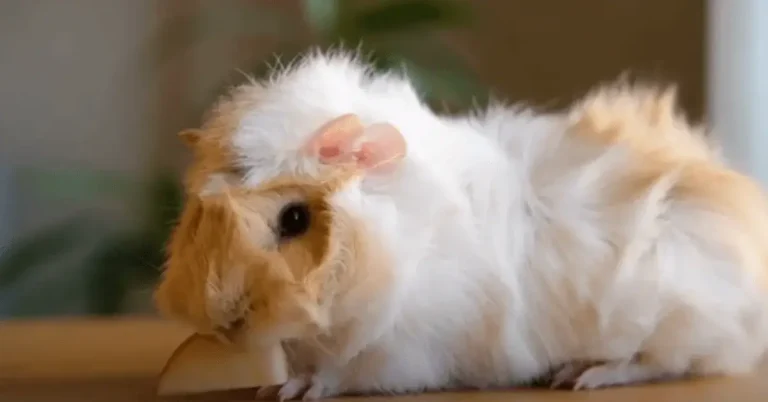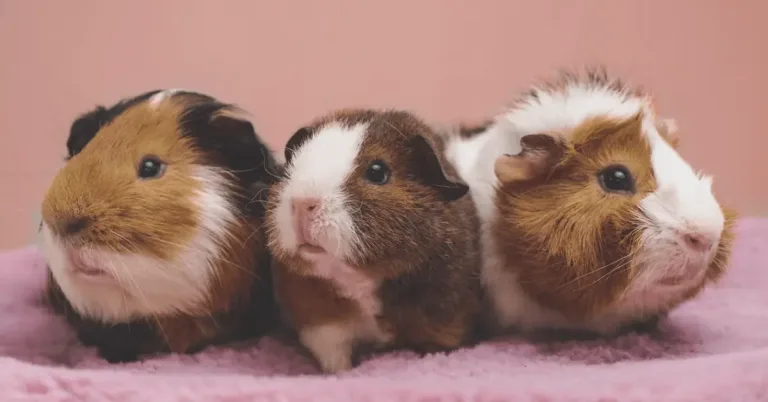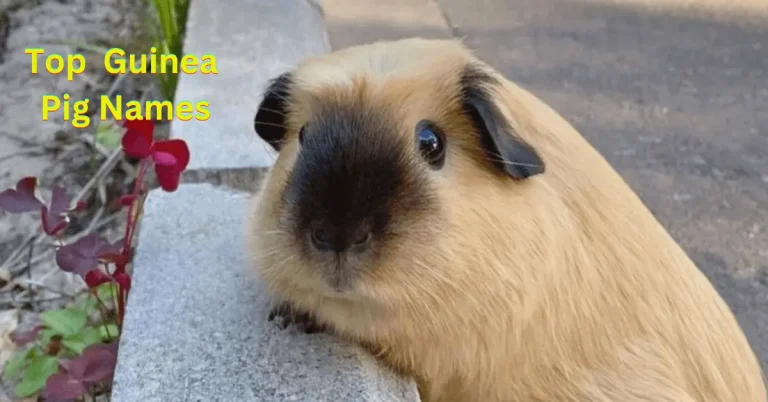Guinea pig hair loss can pose a significant concern for pet owners. Understanding why this happens is crucial to ensure our adorable companions remain healthy and happy. In this blog post, we will explore the causes of hair loss, effective treatment options, preventive care tips, and additional insights to empower guinea pig enthusiasts.
Understanding Hair Loss in Guinea Pigs
Guinea pigs can lose their hair, a condition known as alopecia, in different ways. It might be a bit less fur or clear bald spots. It’s really important for those who take care of guinea pigs to notice these changes and understand that they could mean the guinea pig has some health problems.
Symptoms of Hair Loss in Guinea Pigs
Hair loss in guinea pigs can be caused by various factors, and the symptoms are usually easy to notice. Here are some common signs:
- Bald patches of skin: Areas where the fur is completely missing.
- Thin hair coat: The fur may look less thick than usual.
- Excess fur in the cage: You might find more fur than usual in their living space.
- Heavy shedding when being pet: If you notice a lot of fur coming off when you pet your guinea pig, it could be a sign of hair loss.
Common Causes of Hair Loss in Guinea Pigs
Guinea pigs, with their adorable fur, can face hair loss due to various factors. Let’s delve deeper into the common causes:
Mite and Lice Infestations:
External parasites like mites and lice can trigger excessive itching, leading to hair loss. Regular grooming and veterinary-recommended anti-parasitic treatments can help combat these issues.
Fungal Infections:
Fungal infections, especially ringworm, may manifest as bald patches on a guinea pig’s skin. Maintaining a clean living environment and prompt veterinary intervention can mitigate the impact of such infections.
Barbering:
Guinea pigs may engage in barbering behavior due to stress, hierarchy disputes, or boredom. Providing a stimulating environment with toys and companionship can help curb this behavior.
Hormonal Issues:
Hormonal imbalances, such as ovarian cysts, can contribute to hair loss, particularly in female guinea pigs. Spaying can be a preventive measure, and veterinary consultation is essential for a proper diagnosis.
Nutritional Deficiencies (Scurvy):
Insufficient intake of essential nutrients, notably vitamin C, can lead to a thinning coat. Offering a balanced diet that includes fresh vegetables and vitamin C-rich pellets is crucial for overall health.
Systemic Conditions:
Underlying conditions like Cushing’s disease and hyperthyroidism may play a role in hair loss. Lifelong treatments or specific interventions may be necessary, and regular veterinary monitoring is advised.
Pregnancy and Postpartum:
Female guinea pigs may experience hair loss during pregnancy and postpartum periods. While this is often temporary, ensuring a stress-free environment and proper nutrition is essential for their well-being.

Cutaneous Lymphoma:
Although rare, cutaneous lymphoma can significantly impact a guinea pig’s coat. A veterinarian’s expertise is crucial for proper diagnosis and guidance on potential treatment options.
Treatment Options for Hair Loss in Guinea Pigs
There are few ways for the treatment of Guinea pigs. Treatment varies based on the identified cause:
Veterinary Consultation:
Professional diagnosis to identify the specific cause of hair loss.
Medications:
Anti-fungal creams, mite treatments, or hormonal therapies as prescribed by the veterinarian.
Surgery:
In cases of ovarian cysts, surgical removal may be recommended.
Environmental and Dietary Changes:
Adjustments to the guinea pig’s living conditions and diet based on the underlying cause.
Preventing Hair Loss in Guinea Pigs
- Freezing Hay, Pellets, and Bedding:
- Safeguard against mites and lice by freezing these items before placing them in the cage. This simple step can significantly reduce the risk of external parasite infestations.
- Quarantine New Guinea Pigs:
- Minimize infection spread by quarantining new guinea pigs for four weeks before introducing them to existing companions. This preventive measure is particularly vital for reducing the risk of contagious conditions.
- Vitamin C-Rich Diet:
- Ensure a well-balanced diet with vitamin C-rich pellets to prevent scurvy. Regularly check the expiration date of pellets to guarantee optimal nutritional content.
- Spaying Female Guinea Pigs:
- Consider spaying female guinea pigs to prevent ovarian cysts and related hair loss. Consult with a veterinarian to discuss the potential benefits and risks associated with this procedure.
- Regular Veterinary Check-ups:
- Schedule routine check-ups every six months to monitor overall health and detect potential issues early. Proactive veterinary care is key to ensuring a guinea pig’s longevity and well-being.
- Stress Reduction:
- Create a calm living environment with hiding spots, proper bedding, and minimal noise to alleviate stress. Guinea pigs thrive in tranquil surroundings, and stress reduction is integral to preventing various health issues, including hair loss.
- Proper Grooming:
- Regular grooming sessions help prevent external parasites and maintain overall coat health. Brushing your guinea pig’s fur not only promotes a healthy coat but also provides an opportunity for bonding.

Hair Loss in Guinea Pigs: What You Need to Know
Mostly, hair loss occurs in long-haired guinea pig breeds like Peruvian guinea pigs and Silkie guinea pigs. Here are some points you must know:
Hair Loss on the Sides: Hair loss on a guinea pig’s sides is often linked to ovarian cysts in older females, resulting in thinning and baldness due to elevated estrogen levels. While pregnant guinea pigs may experience temporary hair loss, it’s expected to grow back. Barbering or skin conditions like mite infestations can also cause hair loss.
Losing Hair Around the Eye: Hair loss around a guinea pig’s eye may signal a fungal infection like ringworm or mite infestations. Owners should refer to articles on ringworm and mite infestations for a deeper understanding.
Bald Spot Behind Ears: Bald spots behind a guinea pig’s ears are normal, especially in Abyssinians. However, if accompanied by redness or scabs, it could indicate a fungal infection or mite infestation.
Hair Loss on the Back: Hair loss on the back is often a sign of mite infestations or barbering. Professional diagnosis is crucial for appropriate treatment.
Hair Loss on the Nose: Hair loss on the nose, often due to fungal infections like ringworm, can be effectively treated with antifungal cream.
Bald Patch on the Bum: A bald patch on a guinea pig’s bum may be the grease gland, but genuine hair loss could indicate mite or fungal issues. Veterinary consultation is essential.
Barbering in Guinea Pigs: Barbering, where guinea pigs chew or pluck their hair, is a common cause of hair loss. Further details are available in our article on guinea pig behavior.
Specks or Flakes in Hair: Hair loss in guinea pigs specks or flakes in a guinea pig’s hair may indicate skin conditions, fungal infections, or mites. Professional veterinary diagnosis ensures appropriate treatment.
Guinea Pigs Shedding Hair: Guinea pigs naturally shed hair, which should not be confused with conditions causing baldness. Regular brushing helps manage shedding and prevent tangles.
Hair Loss as Guinea Pigs Age: While aging doesn’t typically cause hair loss in guinea pigs, any drastic changes should prompt a vet visit to address potential underlying health issues.
Losing hair and weight
When a guinea pig displays signs of both hair loss and a decrease in weight, it could be a sign of vitamin C deficiency, commonly known as scurvy. While this condition can account for these symptoms, other factors might also contribute to both hair thinning and weight reduction.
Additional Insights
- Environmental Enrichment:
- Provide toys, tunnels, and a variety of hiding spots to create a stimulating and comfortable environment.
- Quality Time and Interaction:
- Spend quality time interacting with your guinea pig, observing behavior changes, and fostering a strong bond.
FAQs
Can guinea pigs naturally lose hair as they age?
No, guinea pigs do not naturally lose hair with age. If you notice hair loss, it may indicate an underlying issue that needs attention.
How often should I schedule veterinary check-ups for my guinea pig?
Regular veterinary check-ups are recommended at least once every six months to monitor your guinea pig’s health.
Are there specific signs of stress in guinea pigs?
Yes, signs of stress can include changes in eating habits, excessive hiding, and increased vocalization. Creating a calm environment can help alleviate stress.
Conclusion
By unraveling the mysteries of guinea pig hair loss and adopting proactive care measures, you can ensure a healthy and vibrant life for your furry friend. Regular veterinary attention, a well-balanced diet, and a stress-free environment are pivotal elements in maintaining the well-being of these delightful pets. Stay vigilant, provide the care they deserve, and enjoy a fulfilling companionship with your guinea pig.

